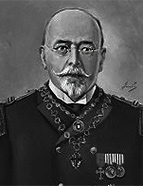

Almeida d'Eça proposed an educational programme for naval officers that encompassed a wide range of knowledge and disciplines essential for life at sea.
The "sea officer" could no longer be the rough sailor of ancient times; instead, they should be an educated citizen, attentive to the societal issues of their time Well-versed in astronomy, physics, and mathematics, as well as in history, literature, and geography, the naval officer needed to be prepared for various roles, including administrative services in the navy or overseas, in maritime industries, and in merchant shipping or fisheries. For Vicente Almeida d'Eça, who was constantly seeking examples from history, Afonso de Albuquerque was one of the few captains who could aptly be considered a precursor to modern "sea officers." He combined the essential qualities of command, maritime knowledge, manoeuvre, and navigation.
Throughout his life, Almeida d'Eça held significant academic positions and was a member of various academic and scientific institutions. He served as a member and one of the vice-presidents of the Conselho Geral da Liga Naval Portuguesa [General Council of the Portuguese Naval League], was an honorary member of the Academia de Estudos Livres [Academy of Free Studies], and a corresponding member of the Instituto de Coimbra [Coimbra Institute], the Society of Geographical and Historical Studies of Santa Cruz de Bolivia, the Geographical Society of Colombia, and the Academia de Ciências de Lisboa. Additionally, he held the positions of interim director of the Escola Naval in 1919, president of the Sociedade de Geografia de Lisboa [Lisbon Geographical Society] from 1922 to 1924, and director of the Escola Colonial [Colonial School] in 1925.
